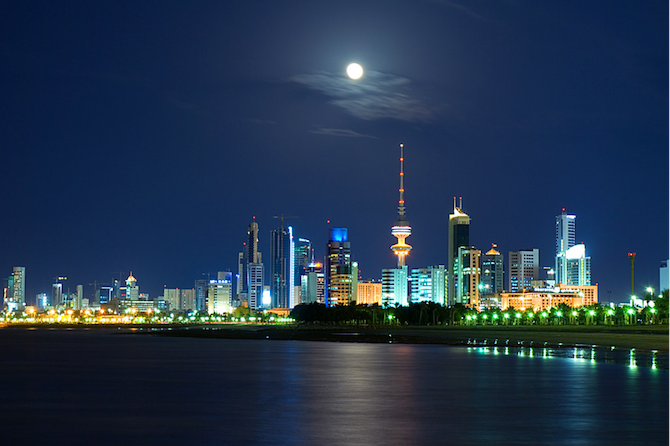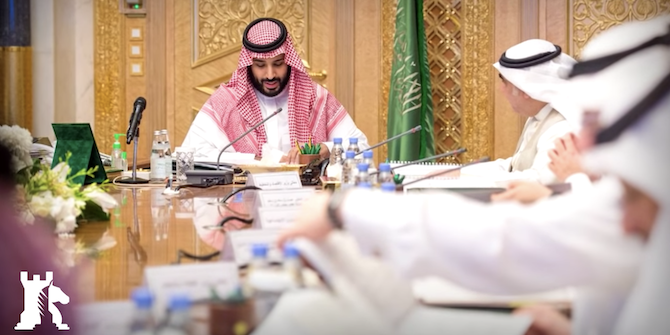By Mariam Alsaad

Kuwait’s energy system is unsustainable and in need of diversification. Source: Cajetan Barretto
Energy systems are an essential element of modern society, as access to energy services (i.e. electricity, indoor cooling) improves quality of life, provides security and opportunities for development. Kuwait is a high-income fully urbanised country which is going through rapid development and growth, its energy system, however, is unsustainable. This is due to the country’s heavy reliance on fossil fuels for energy generation, and the high rate of energy consumption.
Kuwait’s energy system depends solely on fossil fuels for energy generation, with 59 percent and 41 percent of the system being powered by oil and natural gas respectively. Dependence on non-renewable energy sources contributes to climate change and the energy sector in Kuwait is responsible for 95 percent of the country’s total CO2 emissions. With an annual per capita CO2 equivalent of 21.6 tonnes, Kuwait has higher average emissions per capita than the average of the world, European Union and other Middle Eastern countries. High rates of CO2 emissions increase air pollution and Kuwait has dangerously high rates of air pollution, with an annual average of particulate matter concentration (PM2.5) of 63.46μg/m3 exceeding the WHO’s guideline for air quality by six times.
Kuwait is a large exporter of oil (40 percent of the country’s GDP comes from oil export revenues) and diversifying the energy mix by introducing renewables could provide environmental, economic, and social benefits. Environmental benefits include reduced CO2 emissions and decreased air pollution and harmful toxin levels. Introducing renewables could also provide economic benefit, as the country will reduce its own use of fossil fuels therefore there would be more fossil fuels to export, which would provide financial profit. Shifting to renewables has positive social impacts too as it creates jobs within the energy sector, improves the health and wellbeing of citizens (due to reduced negative environmental impacts) and improves the country’s global sustainability status.
Kuwait’s energy system is also unsustainable due to the country’s high energy consumption rate of 15,590 kWh per capita, one of the highest globally and this is expected to triple by 2030. Research has indicated that there is a linear relationship between energy consumption and CO2 emissions, and given Kuwait’s high energy consumption rate, it is easy to understand why the energy system is responsible for 95 percent of the country’s total emissions and why this influences the system’s sustainability status.
Kuwait’s high energy consumption is related to increasing demands for indoor cooling, as temperatures reach and exceed 55°C in the summer. Indoor cooling accounts for 67–70 percent of the total domestic energy consumed, the main cause of high energy demand in the country. Another cause is wasteful end-user energy patterns (i.e. negative consumer habits associated with excessive electricity use), Kuwait’s rate of energy loss is 1.2 times higher than the global average for energy losses.
The factors which have enabled the system to function in the way it does are heavy energy subsidisation and the lack of an institutional energy framework. Ninety-five percent of total electricity costs are subsidised by the government, meaning that end-users pay only 2 fills/kWh, which is significantly lower than international and MENA benchmarks for energy prices. These subsidies have created an industry of inefficient cheap energy, causing an incline of energy demand and governmental fiscal instability. However, citizens regard subsidies as a right of citizenship, and previous talk of subsidy reform and the introduction of energy taxation has always been met with heavy resistance. The Kuwaiti parliament’s involvement in energy policy-making makes it exceedingly difficult to make positive energy reform policies without resistance from MPs and the public.
There is very little incentive for the government to invest in renewable energy due to the abundance of a cheap alternative and lack of political will. Heavy subsidisation has also allowed for unsustainable energy consumption patterns, as energy waste rates are higher in Kuwait than in other GCC countries which have higher electricity tariffs.
The state is the regulator, owner and operator of energy in Kuwait, and the lack of an institutional energy framework limits the state’s potential to operate the system in the best way possible. As institutional energy frameworks act as a legislative guide and help establish new technologies (such as renewable energy) and improve existing ones, they provide transparency on the minimum technological requirements and standards the system must function in.
A sustainable energy transition is required if Kuwait wants to meet future energy demands, reduce CO2 emissions, mitigate climate change impacts and diversify its economy. It seems vital for policy-makers to invest in renewable energy, reform energy subsidies, introduce an institutional energy framework and regulate energy use. It is also worth focusing efforts on decarbonising indoor cooling through decarbonising the electricity grid and investing in sustainable indoor cooling technologies such as district cooling.
A sustainable energy transition will require immense effort from the Kuwaiti government. However, given the urgency of the climate crisis, the current unsustainable state the system is functioning in and the negative associated impacts, action must be taken immediately to ensure the reform of Kuwait’s energy system and create sustainable infrastructure that promotes a healthier built environment for the current and future residents of Kuwait.







An excellent highlight of Kuwait’s energy sector! This kind of accessible information will play a key role in raising awareness among the general public and informing decision-makers.
This is a very informative article on the Unsustainability of Kuwait’s Energy System.
Very informative, great job.